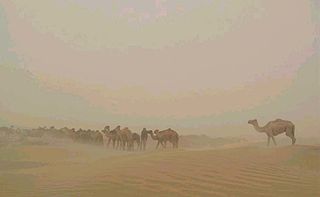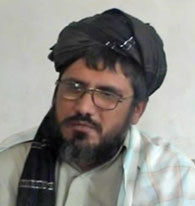Related Research Articles

Afghanistan, officially the Islamic Emirate of Afghanistan, is a landlocked country located at the crossroads of Central Asia and South Asia. Referred to as the Heart of Asia, it is bordered by Pakistan to the east and south, Iran to the west, Turkmenistan to the northwest, Uzbekistan to the north, Tajikistan to the northeast, and China to the northeast and east. Occupying 652,864 square kilometres (252,072 sq mi) of land, the country is predominantly mountainous with plains in the north and the southwest, which are separated by the Hindu Kush mountain range. Kabul is the country's largest city and serves as its capital. As of 2021, Afghanistan's population is 40.2 million, composed of ethnic Pashtuns, Tajiks, Hazaras, Uzbeks, Turkmens, Qizilbash, Aimak, Pashayi, Baloch, Pamiris, Nuristanis, and others.

The Taliban, which also refers to itself by its state name, the Islamic Emirate of Afghanistan, is a Deobandi Islamic fundamentalist and Pashtun nationalist militant political movement in Afghanistan. It ruled approximately three-quarters of the country from 1996 to 2001, before being overthrown following the United States invasion. It recaptured Kabul on 15 August 2021 after nearly 20 years of insurgency, and currently controls all of the country, although its government has not yet been recognized by any country. The Taliban government has been criticized for restricting human rights in Afghanistan, including the right of women and girls to work and to have an education.

The Islamic Emirate of Afghanistan, also referred to as the First Islamic Emirate of Afghanistan, was a totalitarian Islamic state led by the Taliban that ruled most of Afghanistan from 1996 to 2001. At its peak, the Taliban government controlled approximately 90% of the country, while remaining regions in the northeast were held by the Northern Alliance, which maintained broad international recognition as a continuation of the Islamic State of Afghanistan.

Nimruz or Nimroz is one of the 34 provinces of Afghanistan, located in the southwestern part of the country. It lies to the east of the Sistan and Baluchestan Province of Iran and north of Balochistan, Pakistan, also bordering the Afghan provinces of Farah and Helmand. It has a population of about 186,963 people. The province is divided into five districts, encompassing about 649 villages.

Zaranj is a city in southwestern Afghanistan, which has a population of 160,902 people as of 2015. It is the capital of Nimruz Province and is linked by highways with Lashkargah and Kandahar to the east, Farah to the north and the Iranian city of Zabol to the west.
Sher can refer to:

Nāwa-I-Barakzāyi District is an administrative district in Helmand Province, Afghanistan located south of the provincial capital of Lashkar Gah along the Helmand River. It is bordered by the districts of Lashkar Gah, Nad Ali, Garmsir, and Rig, as well as the provinces of Nimruz and Kandahar. It falls within the area known as Pashtunistan,, an area comprising most of southeast Afghanistan and northwest Pakistan. The dominant language is Pashto and many of the 89,000 residents practice the traditional code of Pashtunwali. Nawa-I-Barakzayi's name reflects the dominant Pashtun tribe in the district, the Barakzai. Prior to the 1970s, it was called Shamalan after a small village at the south end of the district

Amir Muhammad Akhundzada is an Afghan politician, He is a former governor of Nimruz province. He was previously the governor of Oruzgan province. Prior to that he served as Deputy Governor of Helmand province.

Abdul Ghani Baradar is an Afghan political and religious leader who is currently the acting first deputy prime minister alongside Abdul Salam Hanafi and Abdul Kabir, of Afghanistan. The co-founder of the Taliban along with Mullah Omar, he was Omar's top deputy from 2002 to 2010, and since 2019 he has been the Taliban's fourth-in-command, as the third of Leader Hibatullah Akhundzada's three deputies.

Abdul Karim Brahui is a former politician in Afghanistan. He last served as Governor of Nimroz Province from 2010 to 2012, and before that he served as a minister in the Cabinet of Afghanistan. From February 2009 to August 2010, Brahui served as Minister of Refugees. In 2004, Brahui was appointed as Minister of Borders and Tribal Affairs.
Mullah Ghani served briefly as the Taliban-appointed governor of Nimruz Province, Afghanistan in 1995. Ghani was culturally similar to his predecessor, Hamidullah Niyazmand. Ghani was removed from power when Jamaat forces counter-attacked the capital city of Zaranj later in 1995.

Muhammad Rasul was the leader of the High Council of the Islamic Emirate of Afghanistan, a Taliban dissident group in Afghanistan, until the group's dissolution in 2021. He was a Taliban-appointed governor of Nimruz Province, Afghanistan. Rasul exerted pressure and suppression on Pashtun factions unpopular with the Taliban, and made a considerable fortune controlling cross-border drug-smuggling through Nimruz.

The Afghanistan conflict is a series of events and wars that have kept Afghanistan in a continuous state of armed conflict since 1978. The country's instability began during the time of the Republic of Afghanistan in the 1970s, which had been established following the collapse of the Kingdom of Afghanistan in the 1973 coup d'état; with the overthrow of Afghan monarch Mohammed Zahir Shah, who reigned for almost forty years, Afghanistan’s relatively peaceful period in modern history came to an end. The triggering event for the ongoing Afghanistan conflict was the Saur Revolution of 1978, which overthrew the Republic of Afghanistan and established the Democratic Republic of Afghanistan. Rampant post-revolution fighting across the country ultimately led to a pro-government military intervention by the Soviet Union, sparking the Soviet–Afghan War in the 1980s.

On 5 August 2010, ten members of International Assistance Mission (IAM) Nuristan Eye Camp team were killed in Kuran wa Munjan District of Badakhshan Province in Afghanistan. The team was attacked as it was returning from Nuristan to Kabul. One team member was spared while the rest of the team were killed immediately. Those killed were six Americans, two Afghans, one Briton and one German.

Since the 2001 fall of their national government in Afghanistan, Taliban propaganda has developed into a sophisticated public relations machine that is shaping perceptions in Afghanistan and abroad. Although polls show the movement remains unpopular, the insurgents have readily exploited a sense of growing alienation fostered by years of broken government promises, official corruption, and the rising death toll among civilians from airstrikes and other military actions. "The result is weakening public support for nation-building, even though few actively support the Taliban," says a report from the International Crisis Group, a think tank that monitors conflicts. An American official in Afghanistan agrees: "We cannot afford to be passive [communicators] any longer if we're going to turn this around."

The 30 June 2011 Nimruz province bombing was a roadside bombing targeting a bus of civilians killing 20 and injuring more than 30 in Nimruz province, Afghanistan. The bus was traveling on a highway between Kandahar and Nimruz province frequently used by coalition forces when it was struck by a bomb. The Taliban did not claim responsibility for the bombing.
The Islamic State–Taliban conflict is an ongoing armed conflict between the Islamic State and the Taliban in Afghanistan. The conflict escalated when militants who were affiliated with Islamic State – Khorasan Province killed Abdul Ghani, a senior Taliban commander in Logar province on 2 February 2015. Since then, the Taliban and IS-KP have engaged in clashes over the control of territory, mostly in eastern Afghanistan, but clashes have also occurred between the Taliban and IS-KP cells which are located in the north-west and south-west.

The Afghan tribal revolts of 1944–1947 or the Khost disturbances were a series of tribal revolts in the Kingdom of Afghanistan by Zadran, Safi and Mangal tribesmen which lasted from February 1944 to January 1947. The causes of the revolts laid in the worsening conditions of farmers, changes in conscription laws, the elimination of the power of Safi tribal leaders, Amanullah loyalism, trading monopolies, government surveillance, taxation, and poverty. The conflict began when government forces clashed with the forces of a tribal leader named Mazrak, who led the Zadran tribe in revolt. The Zadran uprising was followed by additional uprisings by the Safi and Mangal, the former of which elected their own king, Salemai. Faqir Ipi, a tribal leader from Waziristan, also fought for the restoration of former king Amanullah Khan alongside other rebels.

The capture of Zaranj, the capital of Nimruz Province, Afghanistan, occurred on 6 August 2021. According to the local officials, only the National Directorate of Security (NDS) and its forces had put up a fight against the Taliban, but they too eventually surrendered to the Taliban. Local officials had been requesting for reinforcements but received no response. Zaranj was the first provincial capital to be taken by the Taliban in their 2021 offensive and the first one to be captured since Kunduz in 2016.
References
- ↑ Felix Kuehn, Alex Strick van Linschoten (23 August 2012). An Enemy We Created: The Myth of the Taliban-Al Qaeda Merger in Afghanistan. Oxford University Press. p. 478. ISBN 9780199977239.
- ↑ Robert D. Crews, Amin Tarzi. The Taliban and the crisis of Afghanistan. Harvard University Press, 2008. ISBN 0-674-02690-X, 9780674026902. Pg 185-187